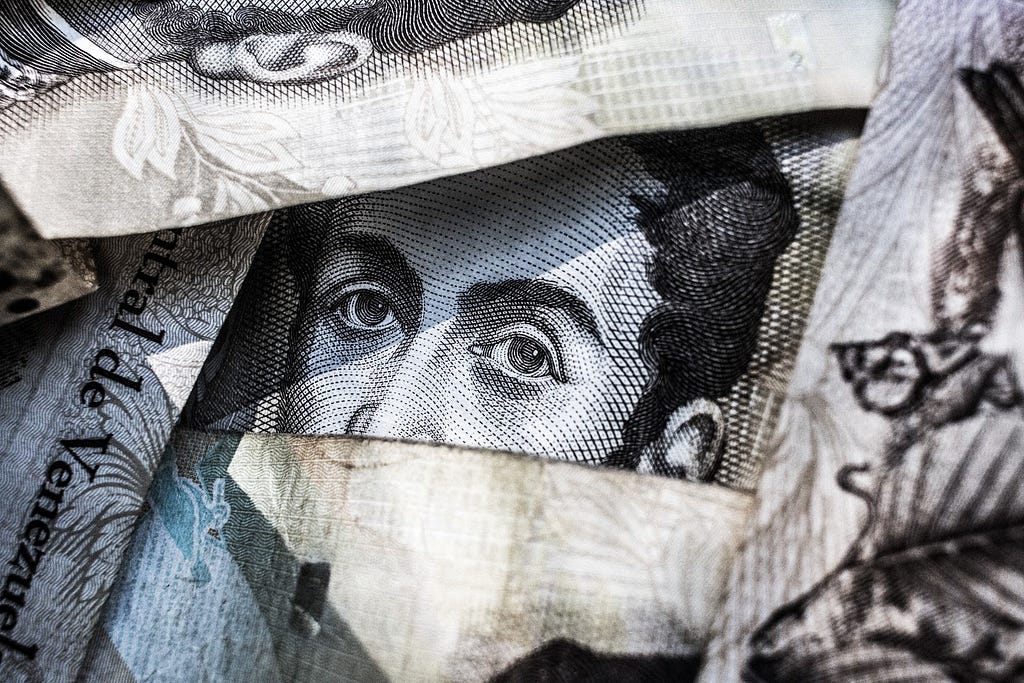Latest news about Bitcoin and all cryptocurrencies. Your daily crypto news habit.
 The eye of the regulator is turning towards crypto exchanges.
The eye of the regulator is turning towards crypto exchanges.
Pump and Dump
It is about time. The Wall Street Journal just published their research on cryptocurrency pump and dump schemes. Apparently, and perhaps this isn’t surprising to some, pump and dumps are a rampant problem and happen all the time. Not even the top exchanges like Binance are immune.
Through chat apps like Telegram and Discord, anonymous users organize communities of investors into pump and dump groups in order to buy tokens at a precise date and time to create a fake rally on the token. The goal of a pump and dump is to get unsuspecting investors to jump onboard the rally and purchase tokens, believing that they can profit off the price climb too.
Once the price reaches a pre-established threshold, those involved with the pump and dump sell off their tokens, making a profit and causing the token to drop back down to its original price. Those unwitting investors that purchased tokens but weren’t in on the game lose their money. Hundreds of millions are lost in these schemes. So where are the regulators?
Financial fraud is a crime even if the activity is not happening on a regulated exchange or alternative trading system. Surprise! Fraudsters who believe that utility tokens are not securities and that pump and dumps will go unpunished because the SEC, CFTC and FTC are not concerned in the matter are wrong on both counts.
Financial fraud falls right in the sweet spot of the SEC and other US regulators. For example, pyramid schemes, in which people on the top of the pyramid sell “products” to others, who in turn hire more salespeople to make their commission, are illegal if the money in the system does not generate any value in return for those who participate. Bingo! This is fraud in one of its simplest forms and so is a pump and dump.
Where is the SEC?
The real question is where is the SEC in this story? How can obvious crimes go unpunished and not be investigated? After all, if the FBI can find Ross Ulbricht, aka “Dread Pirate Roberts,” the head of the Silk Road drug marketplace, and put him behind bars for two lifetimes, surely the SEC can find the less sophisticated criminals behind pump and dumps.
The first step for the SEC would be to collect all of the data from the Telegram chat system in order to identify the group participants. Unfortunately, Telegram uses a very good encryption system, which makes tracing the organizers back to their IP address very difficult. However, there is another way to find them.
It turns out that every website that trades crypto tokens, also called “exchanges,” are a gateway to find the individuals behind pump and dumps. The problem is the SEC will need the cooperation from the operators of the exchanges to nail these criminals. Imagine this scenario: Changpeng Zhao, the founder and CEO of Binance, provides the SEC with the addresses of those accounts that traded just before a pump. Logically, somewhere among those accounts are the organizers of the pump and dump as well as the participants. If the exchange has their identity or IP address, then it is possible to pin the crime to the criminal.
However, the reality is this: Binance is not regulated. It was located in Hong Kong and recently announced its relocation to Malta. Binance has no obligations to help foreign governments, nor any obligations to help its users. In fact, pump and dump schemes work in an exchange’s favor, as these schemes increase liquidity and user activity. It’s just additional revenue for them. Why would they want to prevent that?
Until each country’s regulators decide to get serious about protecting investors, they will not pressure exchanges to become regulated and thus be subject to supervision. Until that point in time, nothing will change.
A regulated marketplace
In the regulated world, US alternative trading systems and exchanges are under the SEC’s direct supervision. The SEC has access to all of the data at anytime. As a result, the broker-dealers and the exchange operators are incentivized to do the right thing and not permit any pump and dump schemes as they could lose their license if the SEC discovered fraud on their trading platform. Not so for the crypto trading websites, or so called “exchanges.” They could care less about fraudulent behavior. Their only priority is growing their user base and generating more revenue. Who exactly that user base is, and what exactly they are doing on the exchange, is far less important to them.
To be clear, in my mind the question is not will these exchanges become regulated, but when. On March 7, 2018, the SEC announced that exchanges that facilitate the trading of securities (this includes the trading of “utility tokens,” which the SEC has made clear often lack utility and are in fact securities in several other bulletins) must be registered with the SEC or exempt from registration. It’s no coincidence that following this announcement companies like Coinbase and Polliniex decided to seek ATS licenses with the SEC and FINRA.
Regulation is happening right now. As companies seeking registration step into the forefront of the industry, the next step is for the SEC to subpoena all of the non-registered exchanges that operate in the US and/or have US users. Then the SEC can collect their data, open enforcement actions, put the pump and dump schemers and other fraudsters behind bars, and restitute investors some of their money.
This is the role of a regulator.
If you liked what you read, please clap and give me a follow on Medium. We will be discussing topics like these at the StartEngine Summit on October 19th in Los Angeles. Click here to learn more: www.startenginesummit.com
Why It Is Time to Regulate Crypto Exchanges was originally published in Hacker Noon on Medium, where people are continuing the conversation by highlighting and responding to this story.
Disclaimer
The views and opinions expressed in this article are solely those of the authors and do not reflect the views of Bitcoin Insider. Every investment and trading move involves risk - this is especially true for cryptocurrencies given their volatility. We strongly advise our readers to conduct their own research when making a decision.

